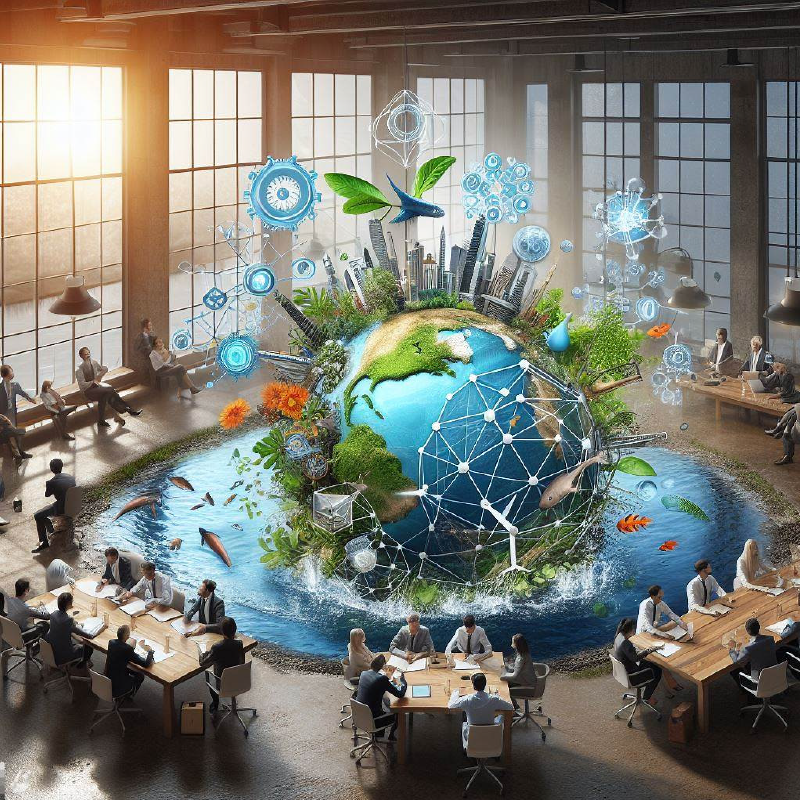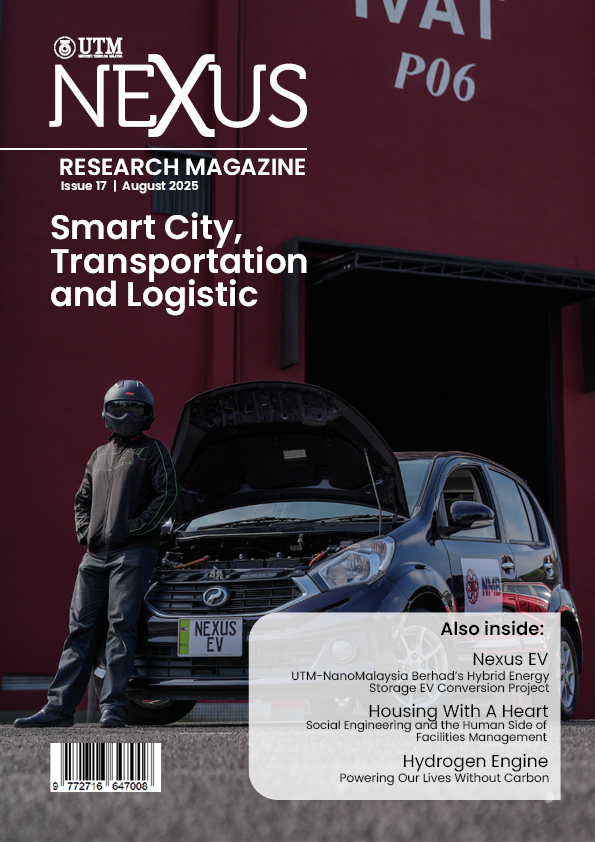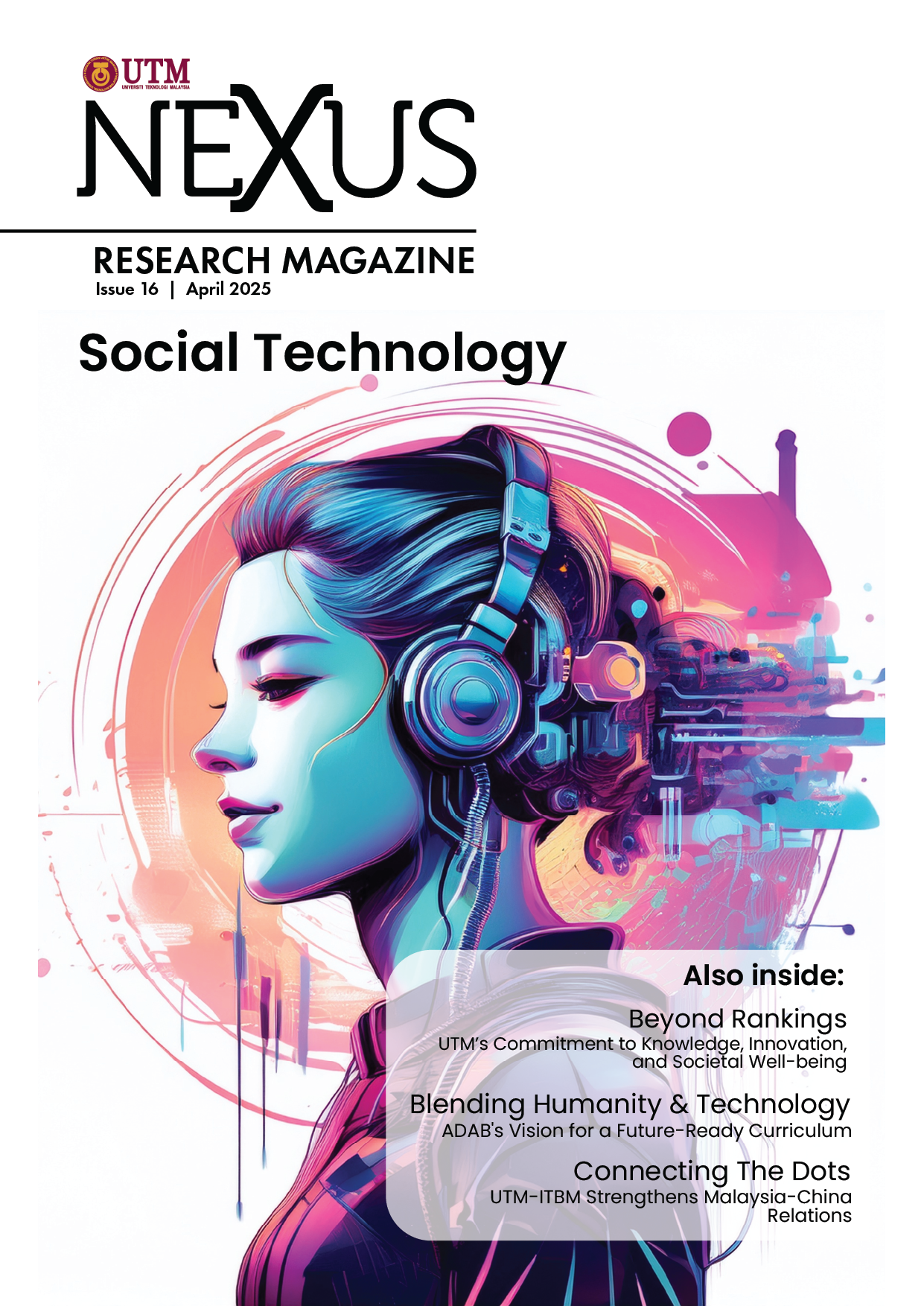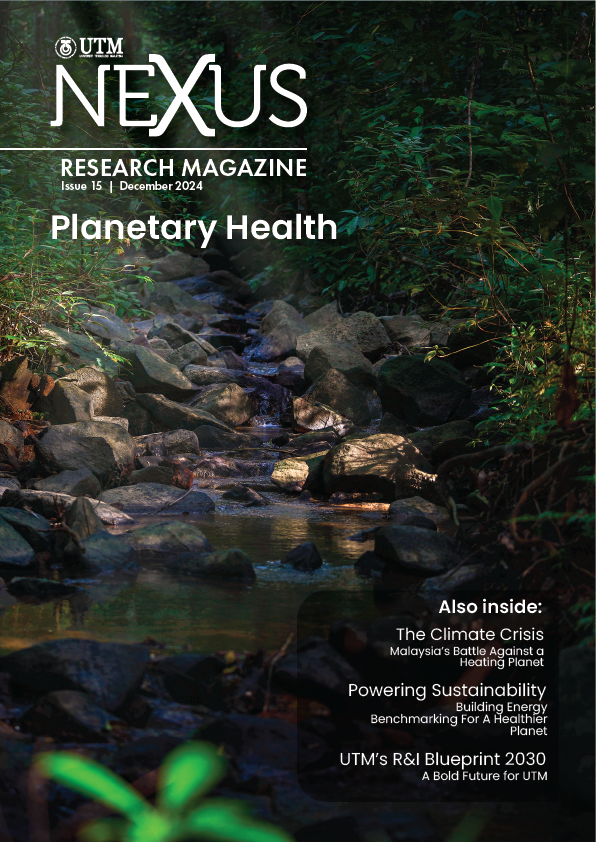Water Sector Transformation
Bringing Science into Practice
by Prof. Dr. Zulkifli Yusop
Water, the elixir of life, holds an indispensable function in sustaining our existence. Despite the march of progress, its purity often teeters on compromise.
The journey to achieving water security poses a pressing real-world challenge, notably evident in Malaysia. Insufficient water resources not only impact immediate necessities but also hold enduring consequences for communities and industries reliant on clean water.

Both quantity and quality of water face intricate challenges and innovation plays a crucial role in addressing the diverse and complex challenges. Its significance becomes evident in driving the development of essential advanced technologies for water purification, treatment, conservation, alternative water resources and mitigation of water-related disasters. These advancements go beyond simply optimizing resource usage through efficient recycling and smart irrigation systems; they also have a positive impact on the economy by creating jobs and promoting cost savings across various sectors and regions. Moreover, they significantly contribute to environmental sustainability by reducing pollution and preserving ecosystems. In the realm of public health, innovative water treatment methods directly combat waterborne diseases and assist industries in complying with stringent water quality regulations and standards.
Beyond technological advancements, these inventive solutions empower local communities to take charge of their water resources, nurturing independence and resilience. Collaboration across diverse sectors gains strength from these innovations, fostering knowledge exchange and hastening the adoption of sustainable water management practices. This continual cycle of innovation and adaptation not only tackles current water challenges but also fortifies our preparedness for uncertain times ahead, securing a dependable and sustainable water supply for generations to come.

Water security defines our existence
Water security is a complex issue influenced by various factors, and one of the critical determinants is the amount of rainfall. Malaysia is blessed with abundant rainfall, receiving an annual average of 2400 mm per year. However, this precipitation isn’t evenly distributed over space and time, leading to resource disparities. The east coast region is strongly affected by monsoon, receiving high rainfall between November and January and followed by dry months. Future rainfall, affected by climate change, is predicted to show two extreme patterns: more intense rainfall during the monsoon season and less rainfall during dry months. Consequently, future floods will be more severe, and drought will be longer and more intense.
But wait, there’s more! Ensuring the quality of available water resources stands as an equally pressing concern. To maintain acceptable water quality standards, strict adherence to industry regulations becomes imperative. The advent of technology, exemplified by entities such as Indah Water, presents innovative solutions, but guess what? The next question is, who bears the financial responsibility for implementing these advanced technologies? Let’s rally together to tackle this long-standing challenge because, as the saying goes, why leave a problem unsolved if we have the power to fix it?
Sustaining innovation through community engagement and financial viability
Water technology has advanced in many areas, but the implementation has been slow. The primary obstacle lies in identifying methods to finance these enhancements. Communities can play a crucial role in alleviating the financial burden by actively participating and sharing the costs. Establishing balance is of the utmost importance as water companies are encountering significant challenges in maintaining solvency due to the prevailing low tariff. This conflict not only impacts the companies themselves but also exerts significant effects on the respective industries they serve.
Over the last decade, water tariffs have remained relatively unchanged, but the threat of water pollution looms large. The presence of pesticides, industrial effluent, pharmaceutical residues, and non-point source pollution in runoff has the potential to contaminate water resources and pose significant health hazards to consumers. Despite regulations in place, controlling these pollutants remains a challenge, affecting both the quality and quantity of water; hence, we need experts to play a role.
We need to acknowledge the fact that Malaysia’s water demand is growing, thus necessitating an augmentation in our water supply. One important part of this is managing how much water we use daily. Here’s the thing: Malaysians use around 210 litres of water per person per day (l/p/d). That’s much higher compared to the recommended benchmark of 165 l/p/d set by the World Health Organization (WHO), as well as the lower threshold of less than 150 l/p/d for countries like Singapore, Hong Kong, Denmark, Netherlands and Germany. Why is this happening? Possible causes for this issue include consumer behaviour or the usage of ineffective technology. We need to spread awareness of water conservation. Possibly, Malaysians do not value water appropriately, given that our water tariff is one of the lowest worldwide. When people don’t pay much for water, they might not think about saving it.
The government is determined to make local water services better through the implementation of new technologies and ideas. However, this endeavour is a monumental undertaking requiring significant financial investment. Addressing these complex difficulties is essential to guarantee water security in the future. Adapting to climate change impacts, addressing pollution, and securing alternative water sources are pivotal steps towards a sustainable and reliable water supply for the nation.
Collaborative solutions and innovations for sustainable water management
Though water technologies are readily available, financial investments remain a hurdle. Balancing community involvement, sustaining industries, and maintaining reasonable water tariffs is vital.
Supply enhancement and demand management are both crucial strategies to meet the ever-increasing water needs. Demand management is about changing people’s behaviour to use water wisely and using water-saving technology. Urgent investments are needed, but the perception that water bills are inconsequential impedes progress. Collaborations with entities like IPASA and engaging communities play a crucial role in raising awareness and implementing cost-effective solutions.
Moving forward, the landscape of water management is set to transform through a dynamic blend of teamwork across disciplines, legal finesse, and rock-solid plans. Think of it as a symphony where law, collaboration, and strategy harmonize to create the perfect score for water’s future. Similar to Singapore’s remarkable water strategy, this endeavour requires steadfast dedication and the delicate attention required to cultivate concepts into viable, market-ready solutions.
But it’s not just about technical prowess; it also encompasses the ability to disseminate knowledge and offer solutions. One must possess the willingness to attentively listen, comprehend, and execute tasks without displaying any trace of arrogance. Effective consulting is not solely determined by your knowledge, but rather by your ability to effectively and judiciously meet the needs of their customers and stakeholders.
Within this domain, where the fields of water research, policy, and public perceptions intersect, the mission remains unambiguous: to integrate diverse talents, demonstrate adaptability with finesse, and uphold mutual respect for each other’s specialised knowledge. This is a voyage led by enthusiastic individuals who are resolute in their mission to transform the way we handle our most precious resource.
Imagine a vibrant tapestry woven from diverse expertise and an unwavering commitment to sustainability. This is the concrete progression of water management, a reality shaped by individuals determined to leave a lasting impact. In a world where water confronts myriad challenges, innovative science emerges as our guiding light. Propelled by unrelenting passion and steadfast dedication, its purpose extends beyond enhancing Malaysia’s water security —it aspires to fortify a healthier world for generations to come.
Professor Zulkifli specialises in flood control, non-point source pollution, and integrated river basin management. At UTM, he was one of the Research Deans, and Director of the Institute of Environmental and Water Resource Management. In addition, he was Chairman of the Public Awareness Committee for the Malaysian International Hydrological Programme, Council Member of the Malaysian Water Association (MWA), Secretary of IWA’s Specialist Group, Group Leader of the Asia Core Programme under the Japanese Society for the Promotion of Science, Group Leader of the Asian Network on Climate Science, Editor of Water Science and Technology, and Head of Research Domain under the Ministry of Education. Currently, he is a board member of Lembaga Urus Air Selangor and Chair of the Malaysia Academy of Science’s water committee. He is the recipient of the MWA Outstanding Award (2019) and the Eco-Frontier Fellowship from the Ministry of Environment, Japan. He was a key researcher for the EU grant on innovative decision-making for sustainable water management. His team has conducted studies on groundwater rise at the Nabawi Mosque, flood risk in Madinah Al-Munawarah, rural water supply in Cambodia, and now the UKRI’s grant on water security.





